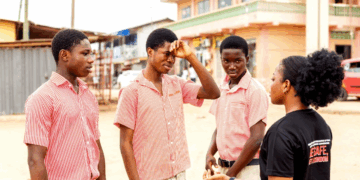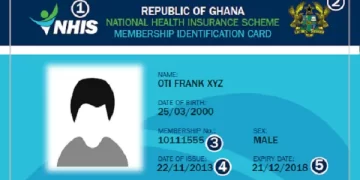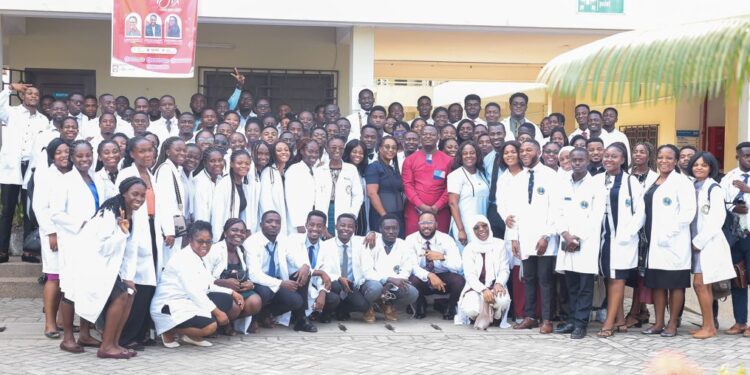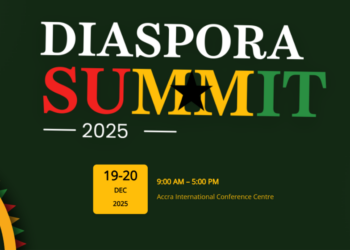The Department of Physician Assistant Studies of the School of Allied Health Sciences, University of Cape Coast has successfully observed its 2022 Community-Based Experience and Services (CoBES) report presentation.
The program which spanned more than six hours saw the participation of 121 final-year Physician Assistants comprising eight different groups presenting their findings and experiences of their three weeks community learning activities.
Community-Based Education and Service (CoBES) is a learning activity that uses the community as a learning environment, in which not only students but also faculty, members of the community, and representatives of other sectors are actively engaged throughout the student’s educational experience.
Speaking at the program the Head of the Department of Physician Assistant Studies, Dr. Stephen Ocansey says CoBES has been rolled out as part of the holistic medical education to train medical doctors, physician Assistants, and other health professionals of the College of Health and Allied Sciences.
According to the set objectives for the year, students are grouped and then they engage in activities including problem-based learning.
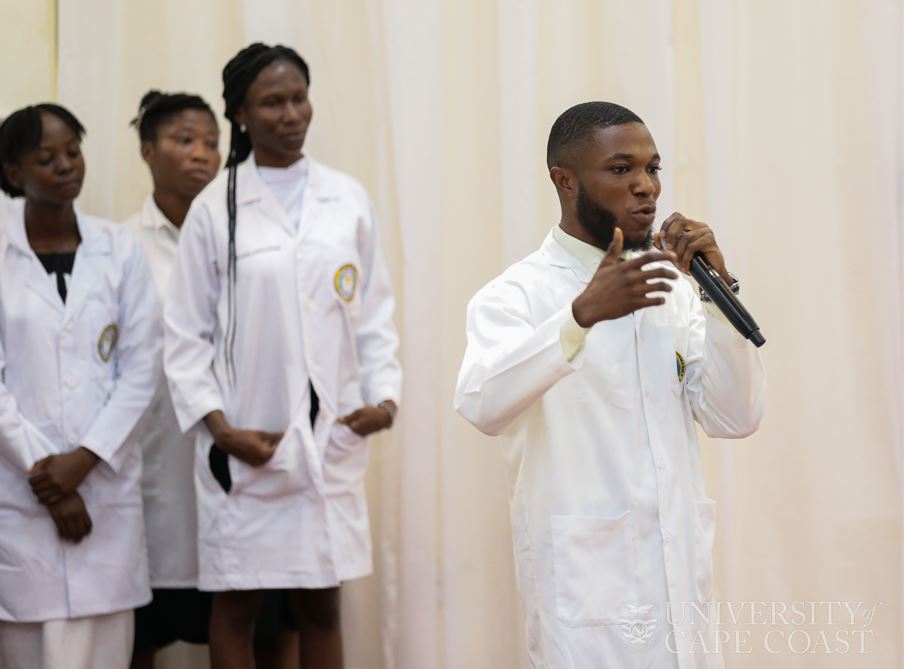
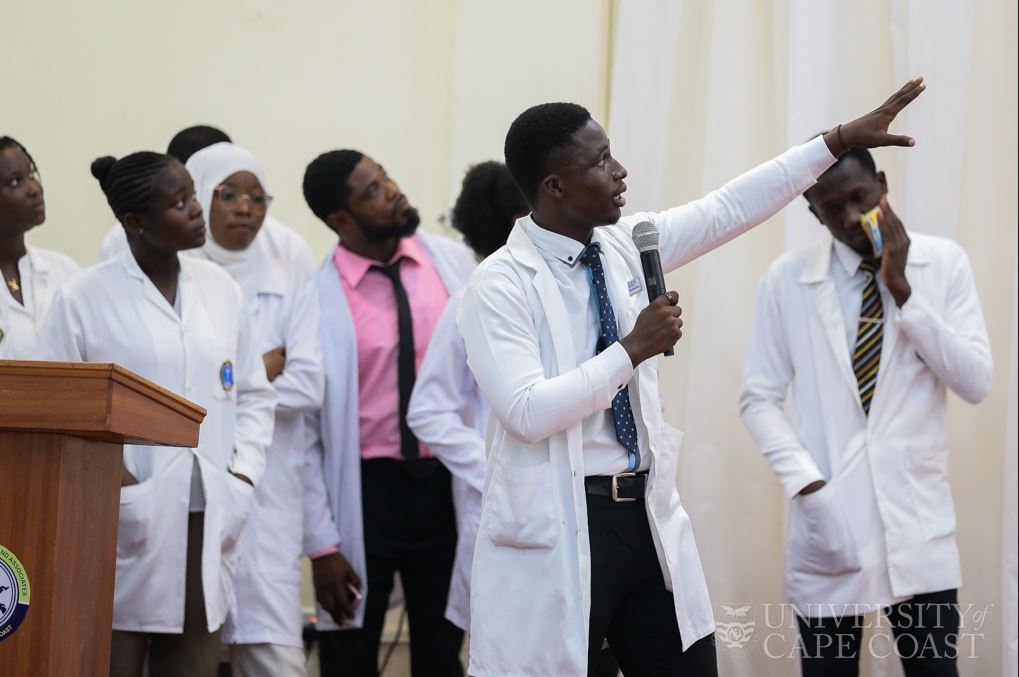
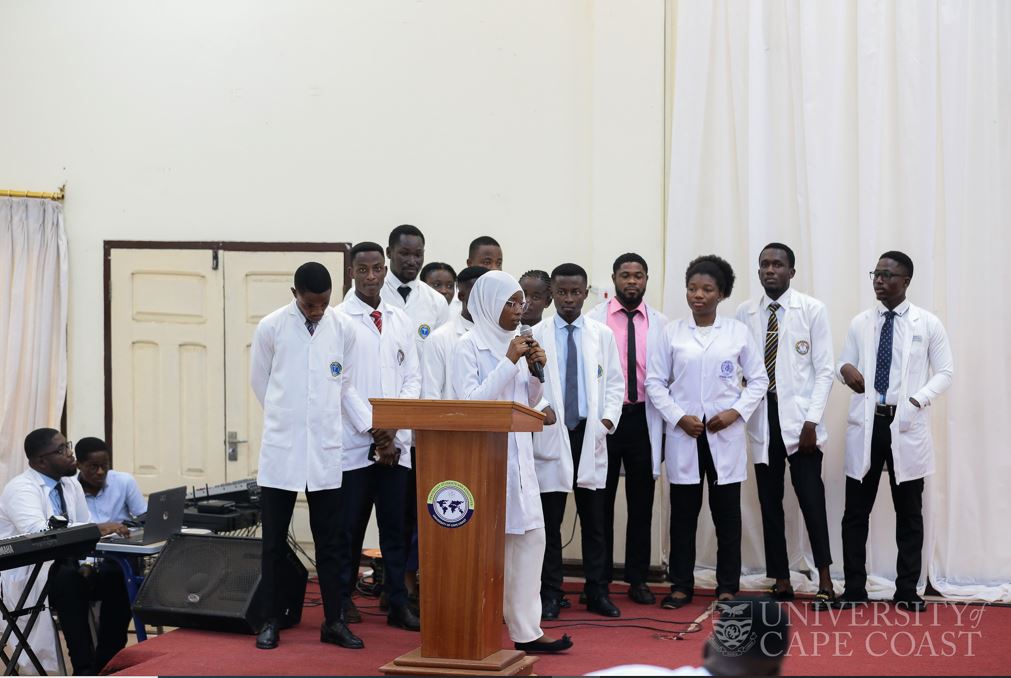
He explained that “when the students are in the third year of their course programme, they engage in community service in an out of country setting. Now with this educational program, Students are usually accompanied by staff members and we settle in a community, usually a village type for about a month.
Now CoBES offers students a lot of learning experiences and also to render services, engage in some practicum and also become a sort of partnership for the university to engage the communities that we train people for.”
Speaking to ATLFMNEWS, the Coordinator for CoBES, Department of Physician Assistant Studies, Dr. Hannah Benedicts Tarlor-Abdulai says the choice of the theme for CoBES 2022: Expanding the Frontiers of Community Health through CoBES, is to solidify the university’s services to the Ghanaian communities.
She however notes that there are challenges that currently beset the program and notable among them is financial constraints.
“The challenge here is that when you are dealing with human beings, you are bound to have some challenges, especially going there, they think that they are giving you something so, you have to also give something back to them. So one, with the screening once you screen them, you have to treat them and we do not have it takes to treat them. Sometimes when they answer your questionnaire or you engage them, they expect that you pay them for what they have done forgetting that we are also doing that to help them.”
Dr.Tarlor-Abdulai, therefore, called on all and sundry to support the programme to ensure CoBES runs smoothly to the benefit of all.
Read also: Broken heart syndrome is real, protect your heart – Clinical Microbiologist Specialist
Source: Eric Sekyi/ATLFMNEWS



